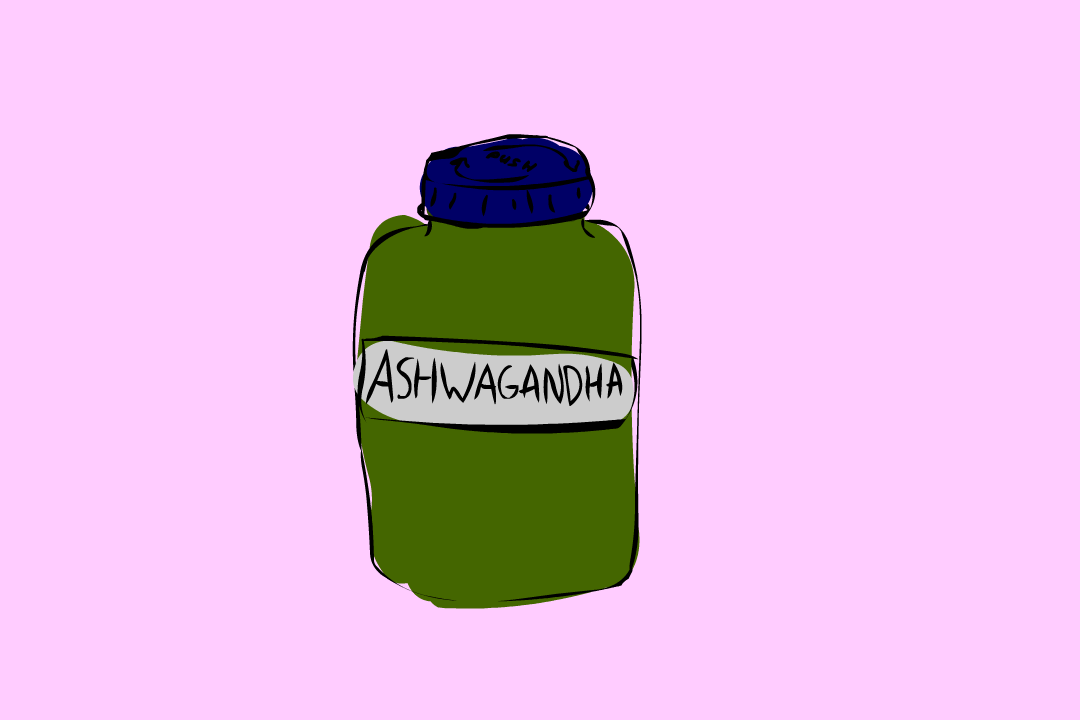
A few years ago while prowling through my local farmer’s market, on the hunt for the freshest head of cabbage I could find, a woman with long frizzy Janis Jopline-esque hair yelled out to me from across the street. She was sitting down, neatly perched behind a white pop up table that was filled to the brim with colorful, psychedelic taper candles that stood upright next to bars of soap, which were nested in wool and bags of what I’m pretty sure was ground up Mugwort. Above her, hanging from a worn canopy tent, was a large brightly colored Mandala banner with the words, ‘Healing Herbs’ embroidered in moss green.
Now, up until this point I actually didn’t know people like this existed. I mean, of course I knew that there were hippies and colorfully dressed new age- spiritual dwellers who walked around talking about their seven Chakras and nine inner energy fields. But being from a small rural town, I sort of assumed that these people all fled to a forest somewhere in Northern California where they shared helpings of tree bark and danced around holding hands while chanting to Mother Gaia. I certainly didn’t expect one of them to break loose from the bunch and start trying to sell me shit at a farmers market…
I walked over to her stand and politely asked how she was doing. After a brief exchange of pleasantries, she informed me that I was walking with a bit of a limp, which is why she called me over. She quickly reached over her shoulder and pulled out a 4 oz bag of what looked like twigs. Suddenly and without any warning I was thrust into a full blown lecture about the bone healing properties of Ashwagandha. A volley of full blown woo woo and mystical gobbledygook was raining down upon me and my only defense was to smile and nod.
“Ashwagandha is a sacred herb and has been used by the people of India for thousands of years to strengthen bones and increase spiritual well being”.
“The most esteemed Hindu sages would administer Ashwagandha to the kings”
“Rishi himself, may blessed peace be upon him, incorporated Ashwagandha into his teachings of what is now Chakra!”
At the time, I just couldn’t take it. I did everything in my power to politely disengage from the conversation, just short of throwing the I Ching myself. After a few more volleys of metaphysical Jesus herb talk, I informed her that I was late for a meeting and evacuated the area, praying that she wouldn’t hunt me down on a broomstick.
Looking back on it, my sense of skepticism (and closed mindedness) was fairly startling. If I so much as heard the slightest amount of herbalist murmurings, I’d grab my SSRIs and make haste to the nearest prescription pharmacist, to be assured that the scary people would go away soon and take their plants with them.

This dogmatic attitude was completely paradoxical. In an attempt to be a science absolutist, I found myself ending up as an anti-science ignoramus; overlooking vast swaths of data which verifies the health benefits of a vast garden of herbs.
As you can tell from the blog name, I’ve since corrected my misgivings and have thus found myself digging deeper and deeper into the world of herbs, uprooting a handful of gems, like Ashwagandha; an herb so rich in history that the sages themselves recommend it…
Ashwagandha and Ancient Indian Medicine

Let’s jump all the way back to the Indian Subcontinent in 1,000 B.C, where the oldest scriptures of Hinduism are being completed. These scriptures, written in Vedic Sanskrit and called the Vedas, are a collection of hyms and verses, stuffed with ancient knowledge and wisdom, compiled into four different collections.

- Rig Veda — Loaded with 1,028 hymns (technically divided into 10 books) making it the largest of the four Vedas. “Knowledge of the Hymns of Praise”.
- Sama-Veda — Contains many of the same verses in the Rig Veda, but formatted in a way that’s suppose to be chanted. “Knowledge of the Melodies”.
- Yajur-Veda — Essentially a how to book on sacrifices and rituals.“Knowledge of the Sacrificial formulas”.
- Atharva-Veda — Filled with charms and mystical enchantments . “Knowledge of the Magic formulas”.
Each of these texts initiated their own unique cultural practices, but the Artharva Veda in particular was the first of the four Vedas to mention Ayurveda; an ancient and incredibly well documented body-mind health system. As far as ancient texts go, this one was revolutionary for the time period, being the first to point out the importance of getting a full nights rest, to exercise and to use Ashwagandha to strengthen the immune system.
In many ways Ashwagandha was the backbone of Ayrveda; as it was known to be perhaps the most powerful herb. It even means “the smell of a horse” in Vedic Sanskrit; a comparison to the strength and fortitude of a stallion (and also that the root smells a little bit like a horse).
The impact of Ashwagandha within Hindu culture is something I can’t possibly overstate. The herb was used as a tonic for such a wide variety of ailments…
Feeling stressed? Ashwagandha!
Are your children a tad bit emaciated? Ashwagandha!
A wee bit tired? Throw em’ the gandha!
This all encompassing use of the herb certainly proves it’s effectiveness on an anecdotal level; but let’s throw all of that aside for the moment, and look at the extensive literature surrounding Ashwagandha’s health benefits.
Ashwagandha’s Usefulness
Anti Cancer Properties:
Ashwagandha’s leaves are filled with a potent cytotoxic withanoloid known as Withaferin A. This bio-active molecule is known for its ability to kill both TEP and ALT cells (cells that lengthen telomerase and deteriorate chromosomes).
Withaferin A. also induces cell degeneration within certain cancerous cells by engaging pro-apoptotic proteins and obstructing anti-apoptotic proteins.
These stunning cancer fighting features have sparked huge interest from the oncology community. Within the next few years, we could see Withaferin A. take center stage in the fight against cancer.
Studies:https://www.ncbi.nlm.nih.gov/pubmed/23667686?dopt=Abstracthttps://www.ncbi.nlm.nih.gov/pubmed/7556065?dopt=Abstract
Cognitive Decline:
It’s believed that oxidative stress is the primary contributor of age induced degenerative disorders such as Parkinson disease and Alzheimer’s. In multiple rat studies, administering 300 mg of Ashwagandha extract daily was found to have a “beneficial effect on cognitive deficit by ameliorating oxidative damage induced by streptozotocin in a model of cognitive impairment”.
(https://link.springer.com/article/10.1007/s00709-013-0482-2)
Ashwagandha was also found to activate antioxidant defense systems, saving nerve cells from apoptosis and DNA damage. As well as causing up-regulation of memory linked neuroplasticity genes and neuronal arborisation, which translates into increased memory.
Studies: https://www.ncbi.nlm.nih.gov/pubmed/15901053?dopt=Abstracthttps://www.ncbi.nlm.nih.gov/pubmed/19705549?dopt=Abstract
Bi-Polar Disorder:
https://link.springer.com/chapter/10.1007/978-3-319-59192-6_17
“The bioactive constituents of Ashwagandha, including withanolides, indosides, Withaferin A, and others, possess anti-inflammatory-immunomodulatory, anti-oxidant, cortisol lowering, anti-stress, pro-cholinergic, anti-glutamatergic and neuroprotective properties, the very processes that are thought to underlie cognitive impairments not only in in bipolar disorder but also in other psychiatric disorders like schizophrenia and major depression”.
Anxiety:
Ashwagandha is a natural adaptogen and has been found in multiple double blind, placebo controlled studies to lower general and social anxiety. It has also been found to increase general well being over the course of 60 days.
Studies: https://www.ncbi.nlm.nih.gov/pubmed/21407960https://www.ncbi.nlm.nih.gov/pubmed/19718255
Some of Ashwagandha’s Organic Compounds
beta-Sitosterol — Can reduce blood cholesterol levels, and prostate enlargement.

Kaempferol — Found to have some anti cancer effects in vitro studies, has been shown in malignant cancer cells to interrupt cell growth, limit angiogenesis, and induce apoptosis.
Withaferin A — Suppresses pro-inflammatory molecules, cytotoxic properties, fights cancerous cells.
Naringenin — Significant antioxidant properties.

Catechin — Antioxidant, may favorably affect cholesterol.
However, There Are a Few Pitfalls…
Despite the hype that numerous supplement companies are pumping out around Ashwagandha, there are a few serious downfalls that are not mentioned enough…
- Ashwagandha’s Neurotrophic Properties are interceded through activation of RET; RET also has a role as an oncogene, or a gene that has the potential to turn cancerous.
Therefore, It’s possible that long term use of Ashwagandha could possibly raise your chances of cancer.
Source: https://www.ncbi.nlm.nih.gov/pmc/articles/PMC2765306/
2. Ashwagandha is an adaptogen, and adaptogens do not have a well known action mechanism. How and why does Ashwagandha work in the way that it does? We’re not entirely sure.
All in all, Ashwagandha has a rich cultural and historical background which compliments it’s effectiveness as an adaptogen. If Anxiety, Depression or Bi-Polar disorder is hindering your day to day life, Ashwagandha is a herb you should seriously consider.
